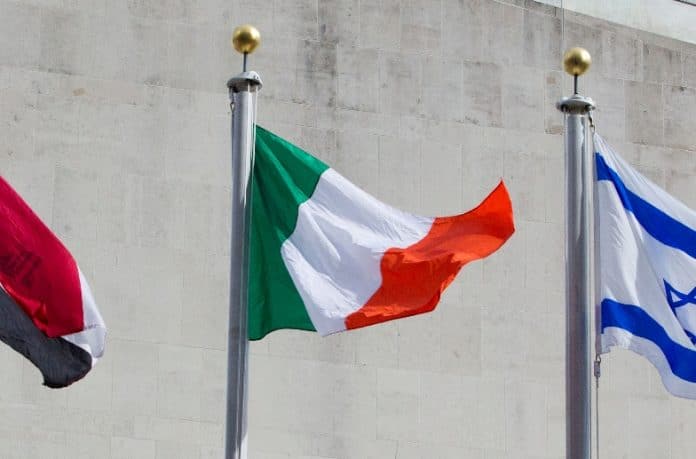Ireland is progressing well in achieving the Sustainable Development Goals (SDGs), the country has outlined as it presents its progress to the United Nations.
For the second time, Ireland has submitted a Voluntary National Review (VNR), which assesses how well a country is doing in its achievement of the 17 SDGs.
Ireland is presenting its review along with 38 others, including the European Union, at the High-Level Political Forum on Sustainable Development which runs from 10-19 July. With the aim of accelerating SDG implementation, the forum allows participating countries to share their experiences and learn from others’ successes and challenges.
A plan for a sustainable world
Unanimously adopted by all UN Member States in 2015, the 2030 Agenda for Sustainable Development detailed 17 goals which aim to achieve a more peaceful and prosperous planet. Many of the problems we face today are interconnected, and the SDGs are a blueprint for ending poverty and boosting the economy whilst also tackling climate change, improving healthcare and ending inequality.
Ireland’s 2023 review of its progress towards the goals was developed around the theme of ‘Building Back Better while Leaving No One Behind’.
“This second Voluntary National Review report reflects our approach to achieving full implementation of the SDGs at home, and to contribute to their achievement internationally, so that no one is left behind,” says Taoiseach Leo Varadkar TD in the report.
Over 80% of the 169 targets linked to the SDGs have been fully achieved in Ireland, the report finds, with significant progress made in areas including education (SDG 4), hunger reduction (SDG 2) and health and wellbeing (SDG 3).
Targets which are not yet being achieved are associated goals on clean water and sanitation (SDG 6); affordable and clean energy (SDG 7); sustainable cities and communities (SDG 11); responsible consumption and production (SDG 12); climate action (SDG 13) and partnerships to achieve the goals (SDG 17).
Education
Ireland performs well overall on SDG 4: Quality Education, the report notes. In early childhood care and education, 97% of all children within the eligible age range are making use of the Early Childhood Care and Education (ECCE) Programme, which provides two years of State-funded pre-school education.
In the country’s 2023 budget, €9.6 billion has been allocated to continue investment in its education system at primary and post-primary levels.
Employment and social protection
More people in Ireland are at work than ever before, the report states, with low youth unemployment and female labour market participation at an all-time high.
Ireland’s target of 2.5 million people at work, set out in the National Recovery and Resilience Plan, was achieved by the end of 2021, and now stands at 2.574 million.
In the wake of the Covid-19 pandemic, support to young people in the labour market was increased, with measures include funding 50,000 additional places in further and higher education and increasing the number of apprenticeships. In the fourth quarter of 2022, the employment rate for young people stood at 46.7 percent.
Climate Action
Ireland has set out commitments to achieving a 51% reduction in Green House Gas (GHG) emissions from 2021 to 2030, and to achieving net-zero emissions no later than 2050 in line with the European Climate Law. However, Environmental Protection Agency (EPA) data shows Ireland’s emissions increased by 4.7% in 2021. In the agriculture sector, overall emissions have grown 19% over the last decade.
Ireland has made considerable progress in decarbonising its electricity sector, with electricity emissions falling by 45% between 2005 and 2020. In 2020, 42% of all electricity generated in Ireland came from renewable sources. However, the country is not on track to achieve renewable energy targets.
Circular economy
Ireland’s report highlights that the country’s material consumption is well above the EU average. The government is adopting measures to support reduced resource consumption, waste prevention, and increased levels of re-use and recycling.
Ireland generated approximately 770,316 tonnes of food waste in 2020, according to the Environmental Protection Agency (EPA). The country is committed to reducing food waste by 50% by 2030 in line with the SDGs.
Ireland has also banned a number of single-use disposable items on the Irish market in line with EU policy and legislation.
Leaving no one behind
The SDGs must be achieved for everyone, and leaving no one behind underpins the 2030 Agenda.
To amplify voices of those furthest behind, civil society stakeholders contributed chapters for Ireland’s review. The country held National Stakeholder Fora to promote meaningful engagement from civil society, including youth representatives.
At the forum held in January, guests from across the country spoke about their experiences of living in Ireland. Speakers stressed the importance of involving all parts of Irish society, including young people, refugees, single parents and persons with disabilities, in the decision-making process.
Mavis Ramazan, Project Officer at the Irish Refugee Council spoke about her experience living in Ireland: “As a refugee in Ireland, we long for community. To be seen, to be heard, and to be listened to. To contribute to a country that now is our home.”.
Mary Brigid Collins from the Pavee Point Traveller and Roma Centre told participants: “The most marginalised and poorest should have a seat at the table. We have creative solutions to offer and we have the trust of our community to bring people together.”
Looking forward
The Voluntary National Reviews will feed into discussions at the 2023 SDG Summit which will take place on 18-19 September in New York.
Heads of state and government will carry out a comprehensive review of the state of the SDGs. The outcome of the summit will be a negotiated political declaration which Ireland and Qatar are co-facilitating.
Useful links
- Ireland’s Voluntary National Review 2023
- High-Level Political Forum on Sustainable Development
- 2023 SDG Summit
- Ireland on Security Council: “Multilateralism central to Irish foreign policy”
- Saoirse Exton: the Irish teenager shaping UN climate policy
- Sustainable Development Goals (SDGs): the EU’s progress report
- High-Level Political Forum 2023: EESC Pursues Sustainable Development Objectives

